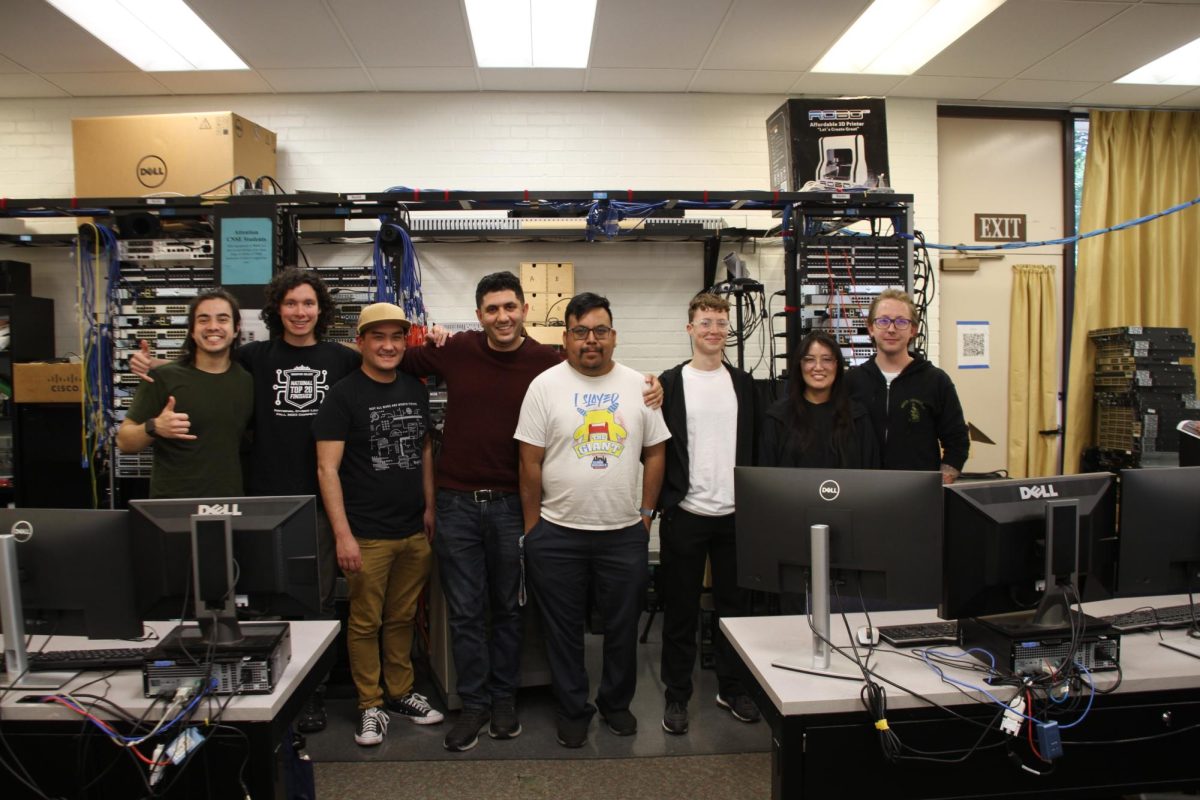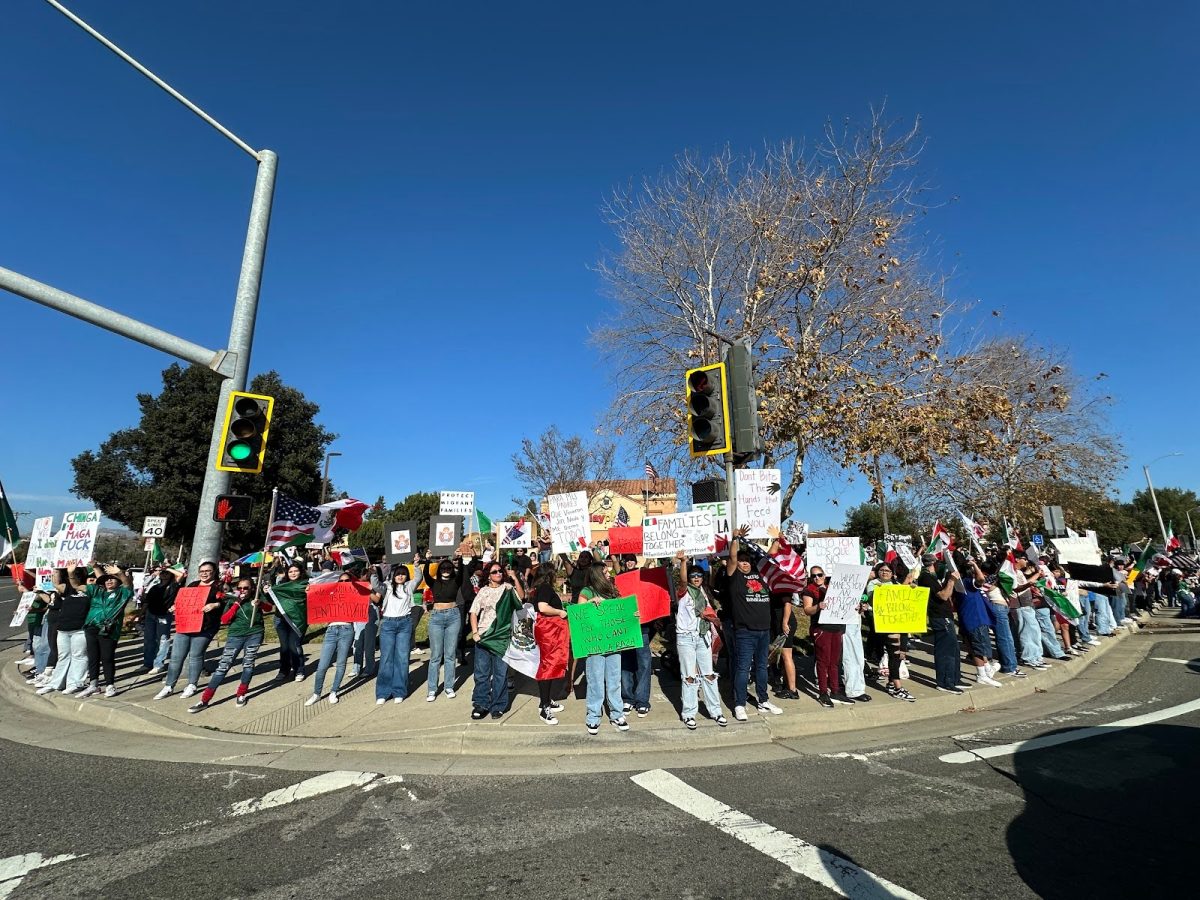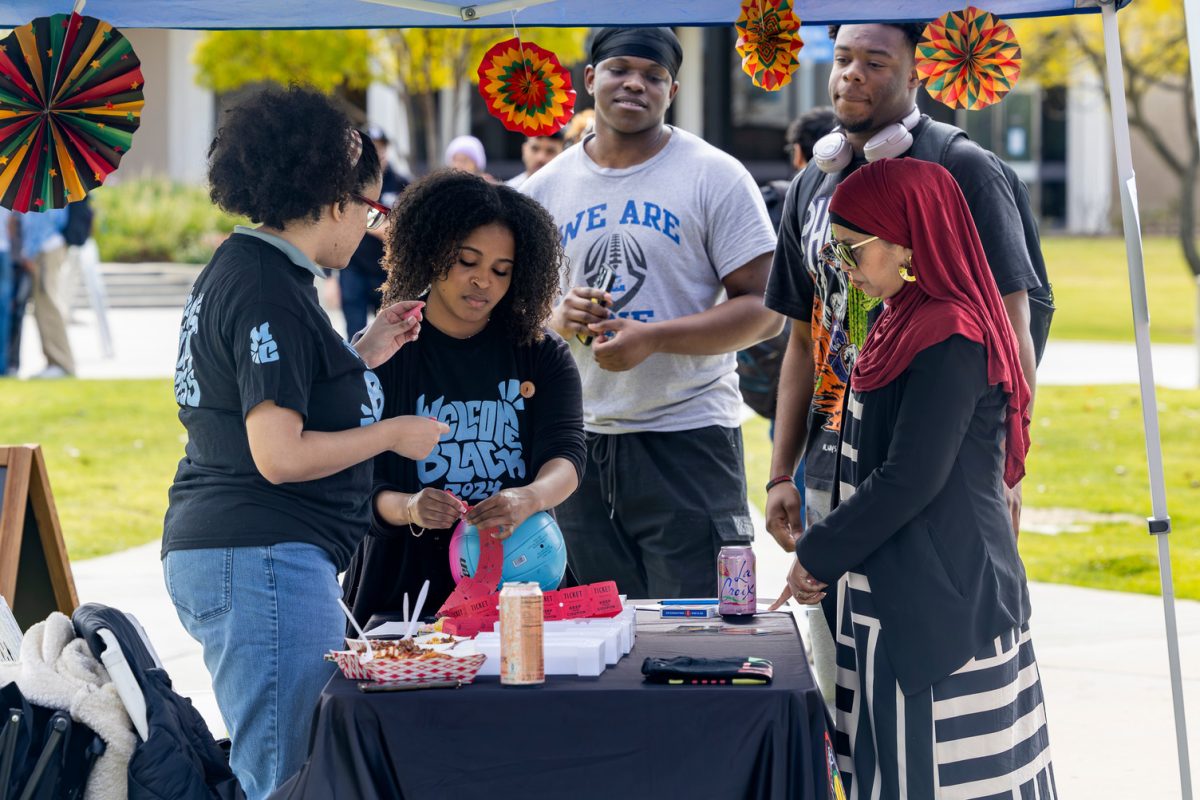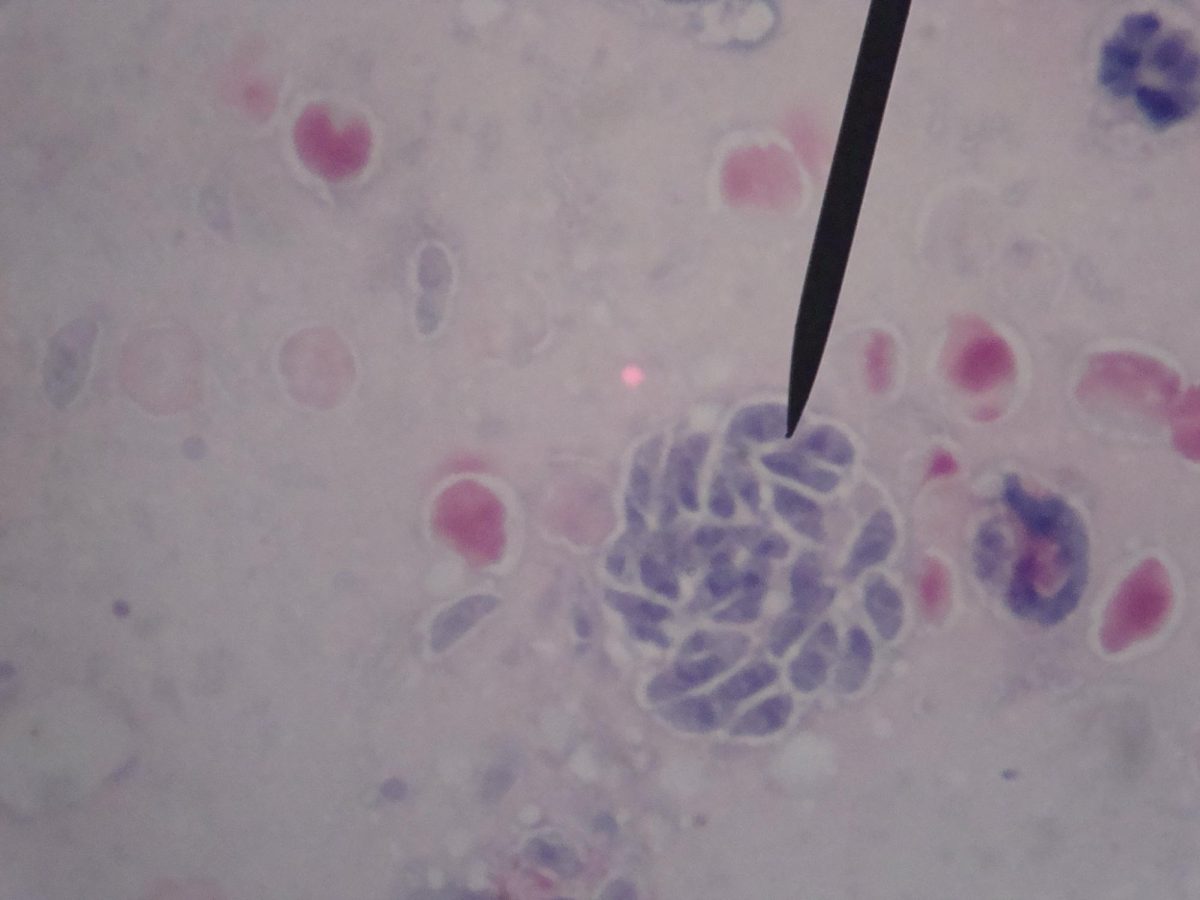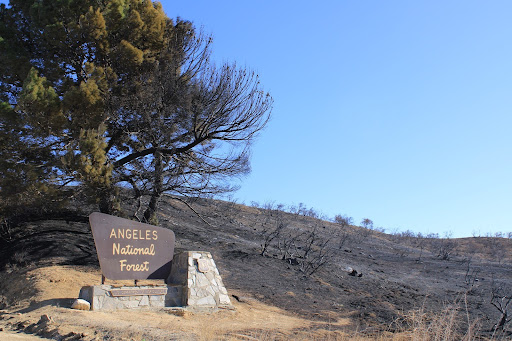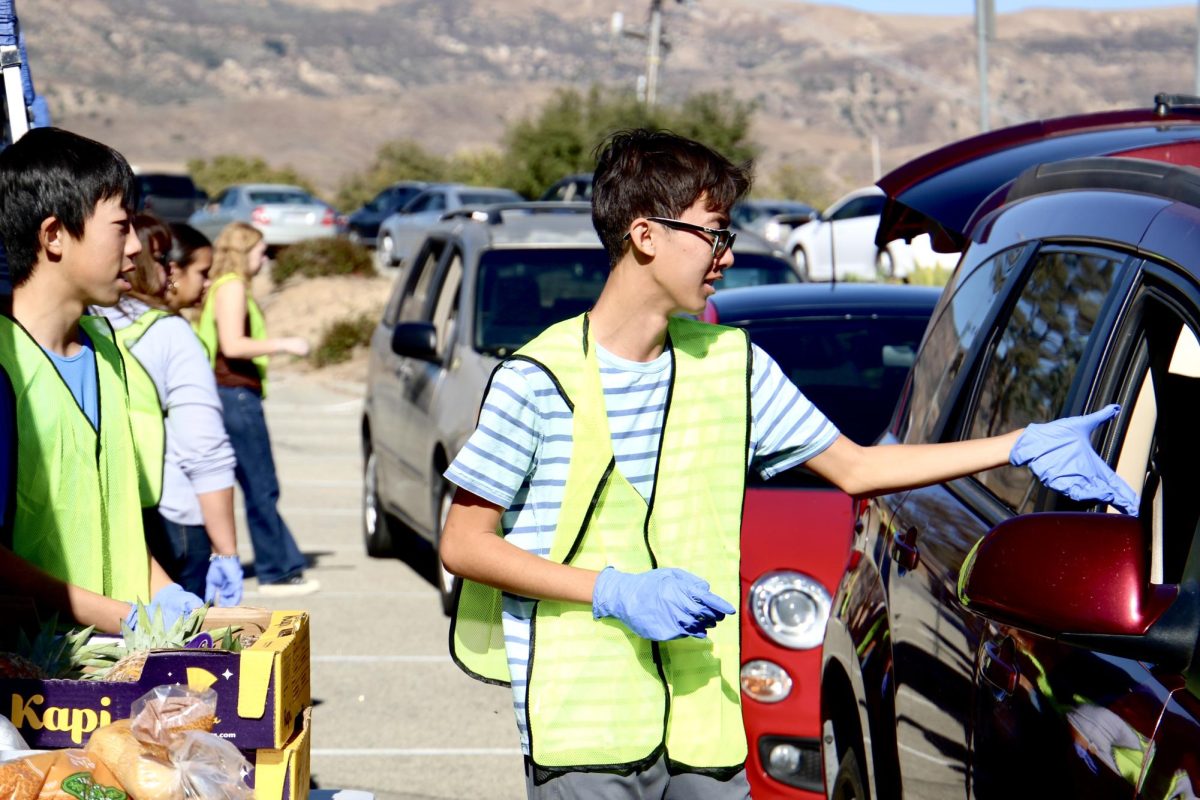A murmur of anticipation fills the packed auditorium. A student clad in a dark suit and tie stands front and center on stage for three tense minutes, planning carefully what he will say next based on a single quotation from an audience member, “When it rains, it pours.”
Joe Laughon’s clear voice interrupts the orchestra of whispers, delving directly into a seven-minute impromptu monologue, fully organized and without so much as a stutter.
Laughon and six other speakers from the Moorpark College forensics team, demonstrated his oratorical abilities during the annual performance known as “Night Before Nationals” on April 1, a type of dress rehearsal for the upcoming journey to the national championship in Portland, Ore. from April 3 to 12.
Forensics coach and speech Professor Rolland Petrello said the night of preparation is a good indicator for the level of performance he expects from the team in Portland.
“I thought they were absolutely fabulous tonight,” said Petrello. “They really represented what we do well.”
Forensics director and speech Professor Jim Wyman said the judging for forensics, or speech and debate, is subjective and that anything can happen. Careful not to jinx them, Wyman did not want to say much about his expectations of his students.
He advises the team not to lose sight of its goal, however.
“If they keep their minds focused and do what they need to do, we should have good results,” Wyman said.
The team hopes to win its ninth national title after placing second last year for the retiring Wyman, who has been with the team for all of its 37-year history.
“My hope is to win one more for Jim,” Petrello said.
The 16-student forensics team will compete in three speaking categories, including limited preparation, interpretive and debate.
Wyman compared speech and debate to a track team, where each of the team members have his or her own specialization, whether it is impromptu or extemporaneous speaking in the limited preparation category or a prepared speech in the interpretive category.
In impromptu speaking, the competitor has three minutes to prepare and seven to speak. Extemporaneous speaking allocates 30 minutes for preparation so the speaker may research facts for a more in-depth speech.
Justin Harris delivered an extemporaneous speech on President Barack Obama’s first 100 days in office at “Night Before Nationals,” relating the topic to an unexpected introduction that immediately made the audience laugh.
“Childhood obesity is a problem that plagues fat kids everywhere,” Harris began, relating the president’s resiliency to the Texas state government in fighting obesity. “We’re starting to see the same cynical attitude fall on Obama’s administration as Bush’s. Just about nothing is going to live up to the hype that Obama rode in on.”
He noted on stage that he only cited articles from 2009 and made points on the economy, Obama’s cabinet nominations and international relations. Like all the other limited preparation speeches delivered that night, the orations stated the main points of the speech, went into more detail and ended full-circle with a recap of the same three points.
Teammate Chris Maciel introduced Harris before he went on stage. Maciel told the audience that Harris earned the title of “Best Speaker in California” at the state championships.
“He’s kind of like the Michael Phelps of forensics,” Maciel said to the crowd. “But unlike Michael Phelps, he does not have pictures of him doing illegal narcotics on the Internet.”
In national competition, Harris and Maciel will compete together in the parliamentary debate team event in which the participants learn the topic 20 minutes prior to the 40-minute debate. The structured event will involve four speakers total, two from each school.
Harris will also compete in the Lincoln Douglas debate, one of the biggest events at nationals, he said.
Like Wyman, Harris believes the team needs one thing to win.
“I think if we stay focused and work hard, then we can accomplish the goal of winning a national title,” he said.
While Harris specializes in limited preparation speech, other forensics team members choose categories that entail longer presentations, and therefore, longer periods of practice.
Dallas Wells, who will compete in the interpretive speech category, delivered a speech to entertain. She gave a witty commentary on the “hyper-life” phenomenon, the American youth’s obsession with online social networking sites.
“It was a chance for me to write on something that I have an opinion about,” Wells said. “It’s a cool chance for me to poke fun at something that’s really prevalent in our generation, but I also get to ask people to examine how they spend their time.”
Wells explained that a speech like hers develops in three parts, writing, preparing and drilling.
She said the writing took two to three weeks and she memorized the speech in one week.
“Every time you perform it, it gets easier to perform,” she said.
The preparing and drilling stages involve practice alone, then with a coach and finally with an audience.
Wells received weekly feedback from her coaches to help polish her discourse on Facebook and Twitter.
Forensics coach and speech Professor Jill McCall and Petrello both appreciate the work the students put into practicing and polishing their craft, especially in the past week.
“In football, they have a thing called ‘hell week,'” Petrello said.
Despite the workload for five coaches and 16 students, McCall believes the hundreds of hours spent in rehearsal will pay off.
“It’s been a lot of hard work, but it’s been inspirational,” McCall said. “You don’t regret the work you do; you regret the work you don’t do. They have to really want it.”
With determination, the Moorpark College forensics team travels to Portland to realize the singular objective of this year, what Petrello and the team call “The Jim Wyman Farewell Tour.”
“That’s been the big goal all year,” Petrello said.

